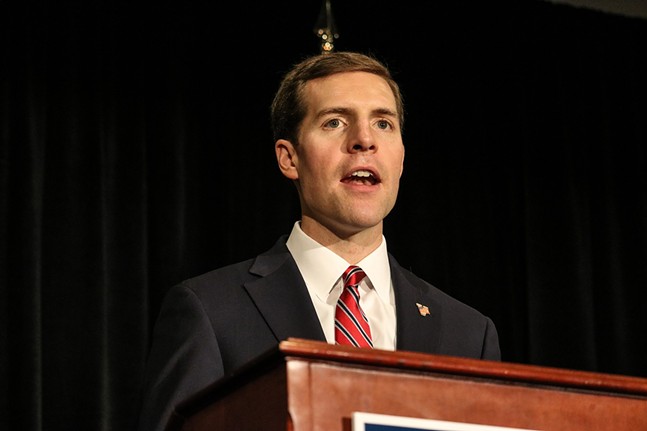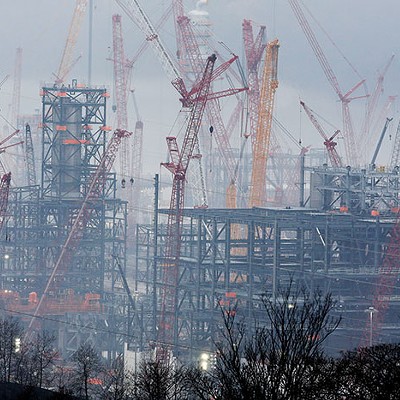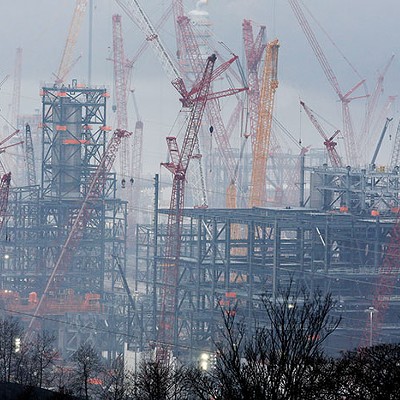Unsurprisingly, Pennsylvania’s nuclear sector is also struggling. A FirstEnergy nuclear power plant in Beaver County is set to close in 2021, and a bill in Harrisburg is proposing allocating money to subsidize that plant and others in the state as a way to keep them open. (Update 3/13/2020: FirstEnergy's nuclear power plant says it will now remain open past 2021.)
At a congressional hearing in Beaver County on May 3, U.S. Rep. Conor Lamb (D-Mount Lebanon) said we can’t afford to lose any nuclear power stations.
“In Pennsylvania, 40 percent of our electrical power is supplied by nuclear plants,” said Lamb during a panel with Congressional representatives and experts in Shippensport, Pa. “A lot of people don't know that, but we’re going to make sure people know it - 40 percent. We will never make progress on climate change without saving these plants and keeping these workers at work.”
Nuclear power is currently being outpaced by natural gas and renewables like solar and wind energy. In fact, Pennsylvania is one of the fastest growing states in terms of solar energy. Coal power plants produce the most greenhouse gas emissions in the U.S., but the natural gas industry produces a large amount of methane, another greenhouse gas. Nuclear power plants don’t produce any greenhouse gasses.Today @HouseScience Energy Subcommittee will host a Field Hearing on the importance of nuclear energy to our region, first stop for Members of the Committee is a tour of @BVPowerStation in @BeaverCtyPA . #PA17 pic.twitter.com/D3ty0ntNE2
— Conor Lamb (@RepConorLamb) May 3, 2019
Nuclear isn’t without environmental consequences, however. Uranium processing releases greenhouse gases, and meltdowns and partial meltdowns can cause significant dangers to surrounding communities. Uranium is used to fuel nuclear power plants.
Even so, Lamb encouraged government intervention to save the Beaver County plant, citing the environmental necessity to avoid moving toward too many fossil-fuel power plants. Subsidizing nuclear plants to keep them afloat would likely lead to slight increases in utility costs for consumers, but proponents also cite the environmental benefits of doing so.
Lamb also said maintaining a nuclear profile in America will help keep the country competitive in supplying nuclear power plants to other countries. Westinghouse, headquartered in Cranberry, builds nuclear power plants in countries like China, for example.
“And when foreign countries go to build nuclear plants — which they will — we have to have them turn to us instead of our adversaries,” said Lamb.
The closing of the FirstEnergy nuclear power plant would be a disaster for the Beaver County area, said Lamb. The plant currently employs 1,000 people, and Lamb said the loss of those family-sustaining jobs would have a ripple effect on the region’s economy.
“There are many reasons, but the fact is this: thousands of people worked hard to build, maintain and operate this plant,” said Lamb. “Many of those thousands are veterans of our armed forces. They deserve better than to have their life’s work pass into history, especially because their work has never been more important.”

















